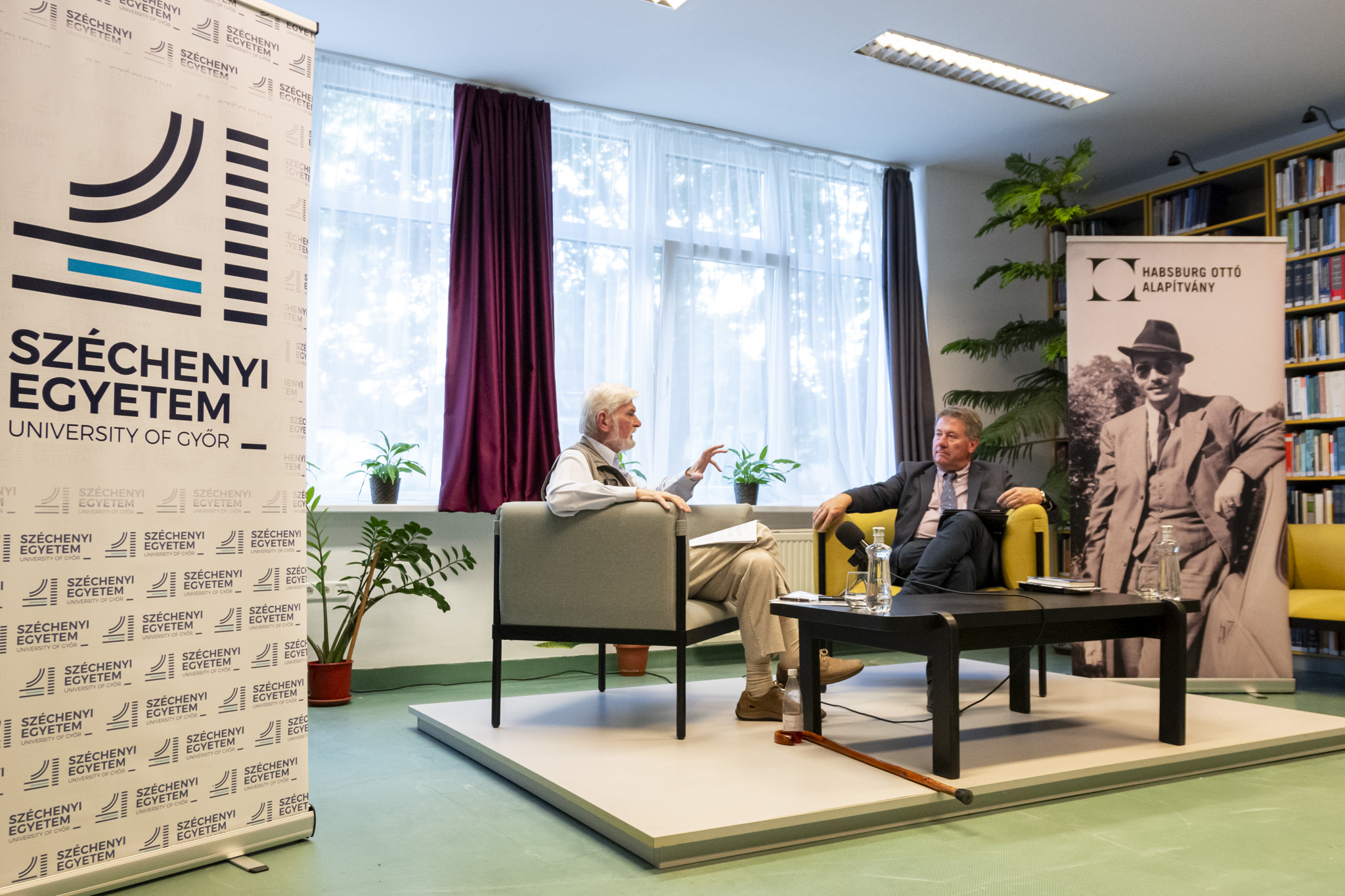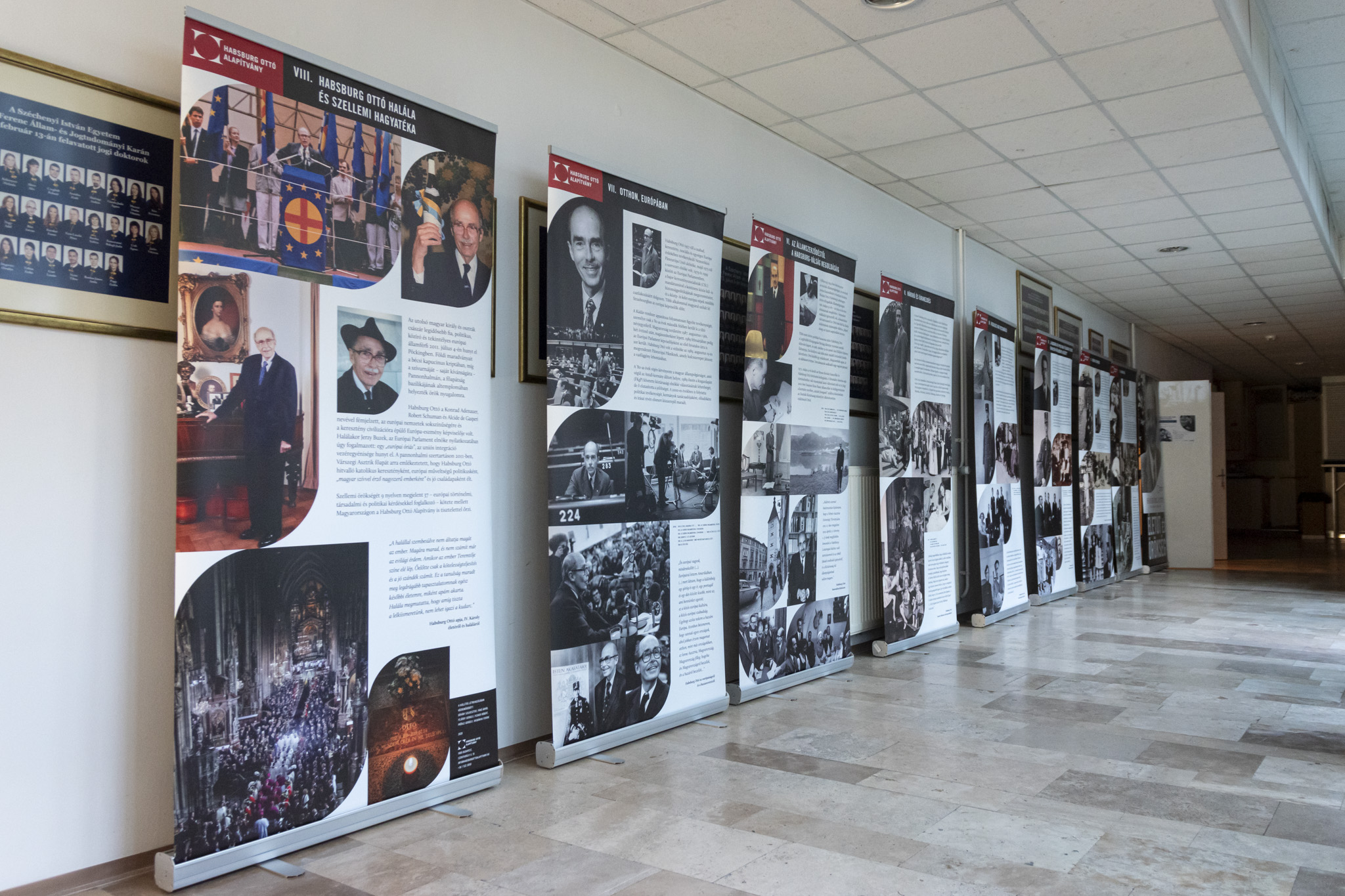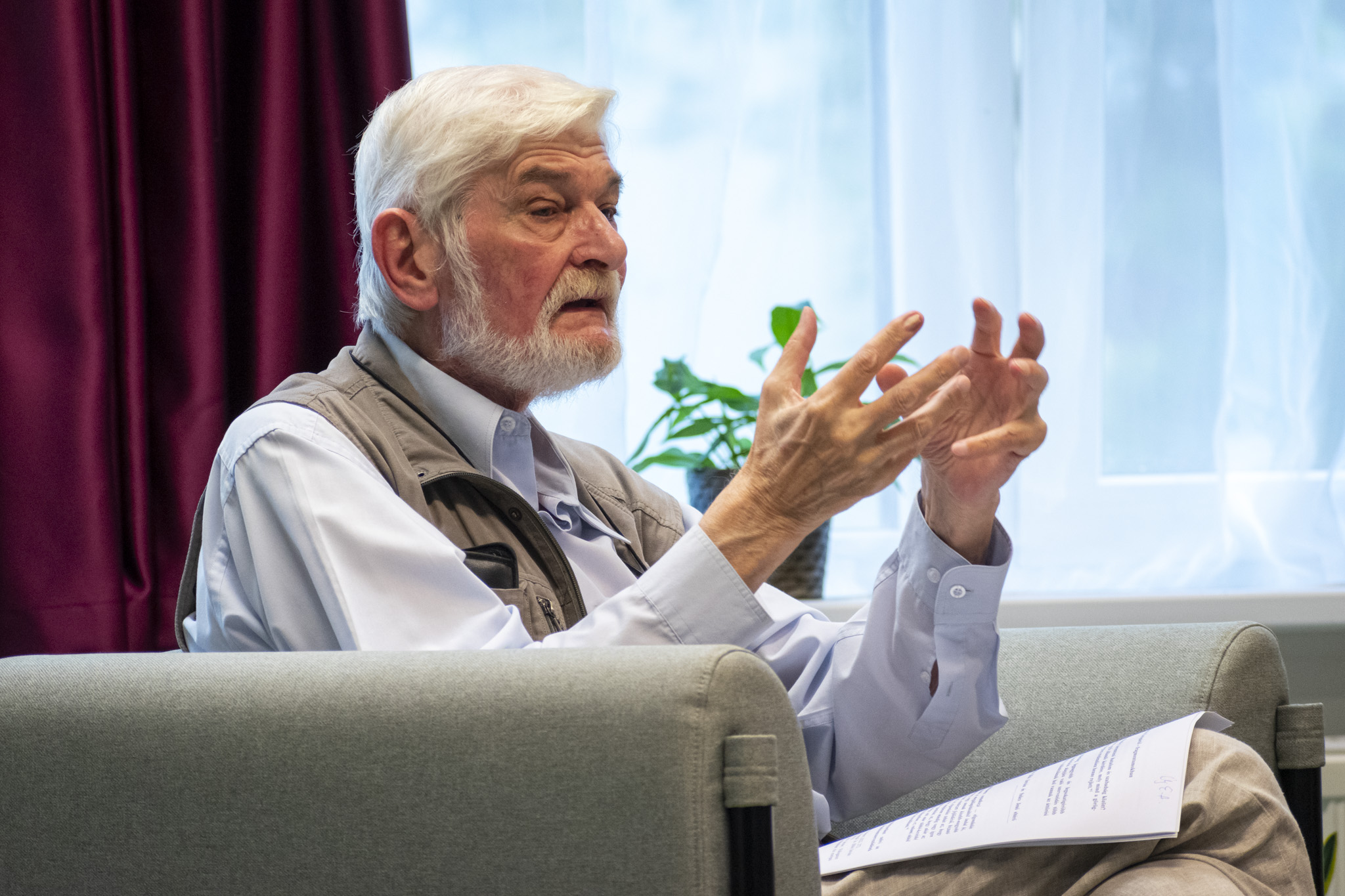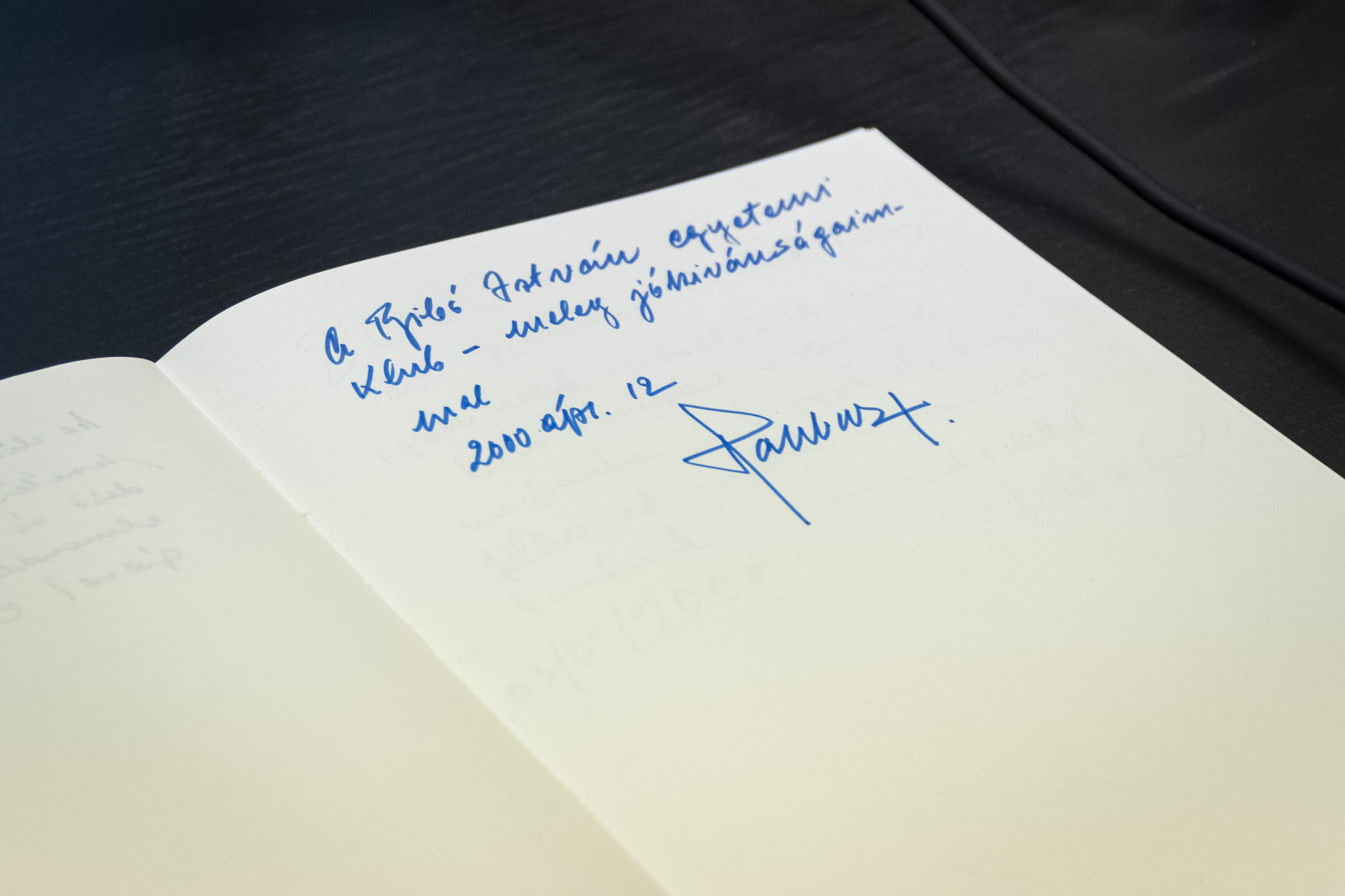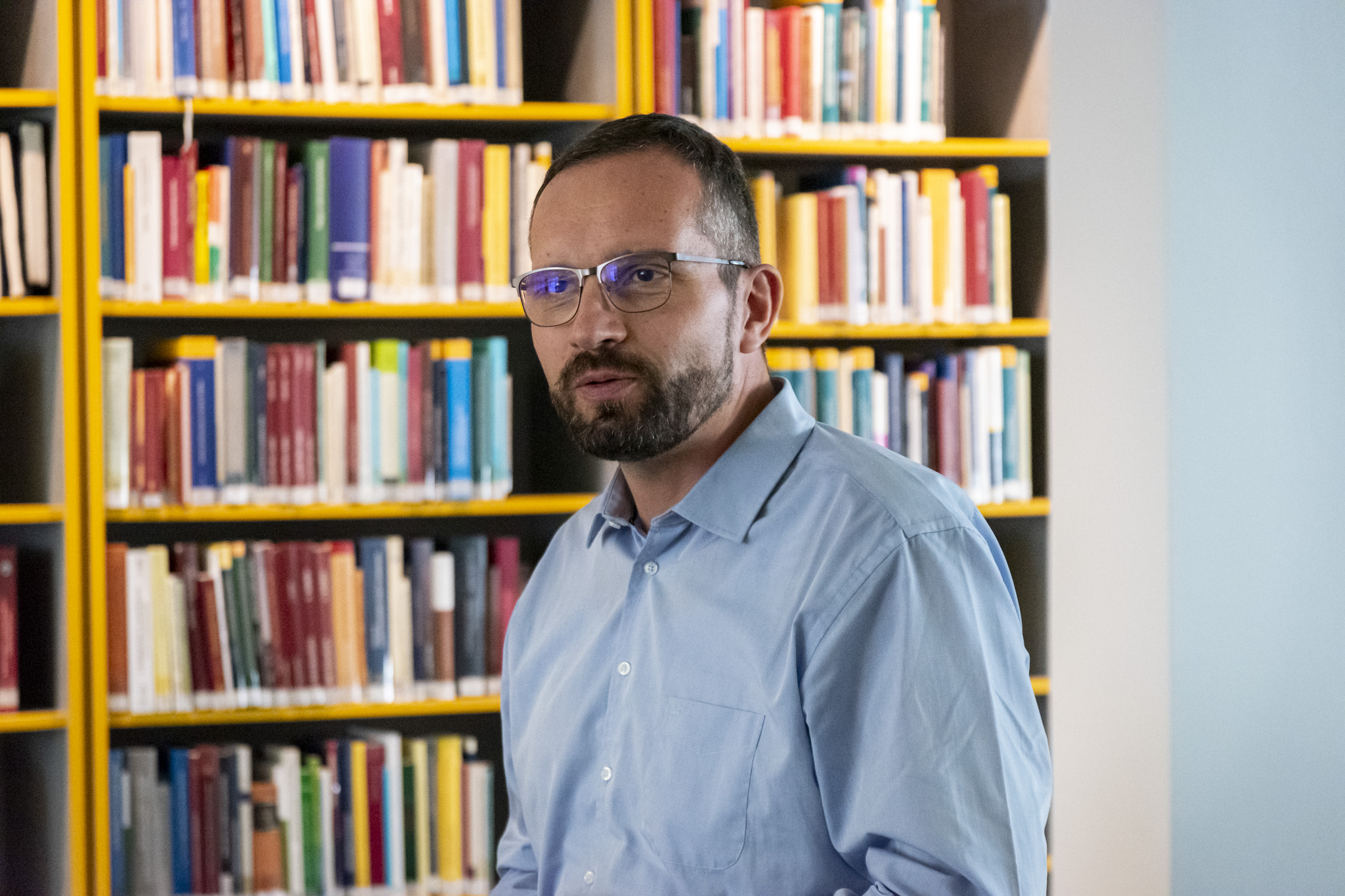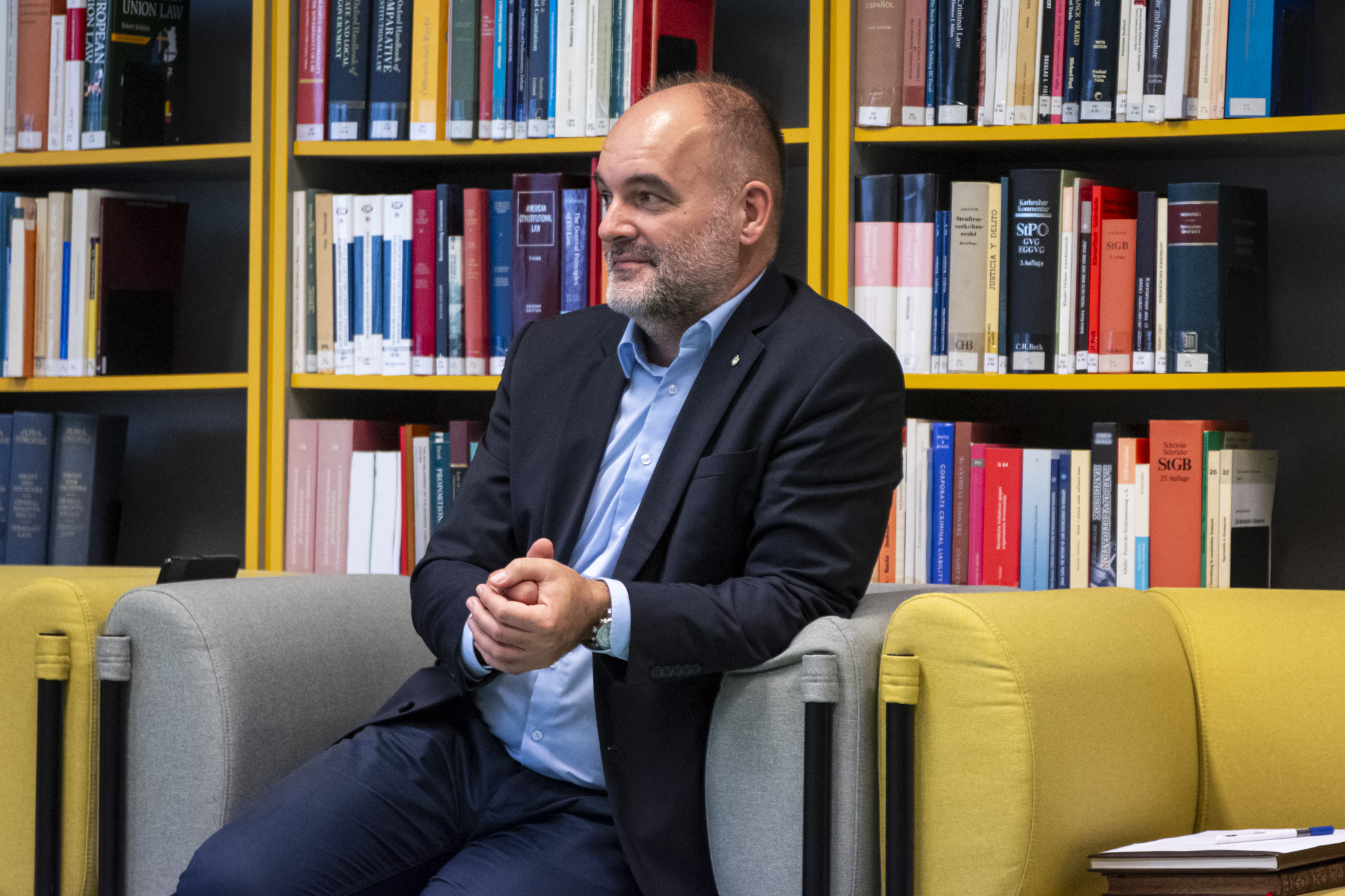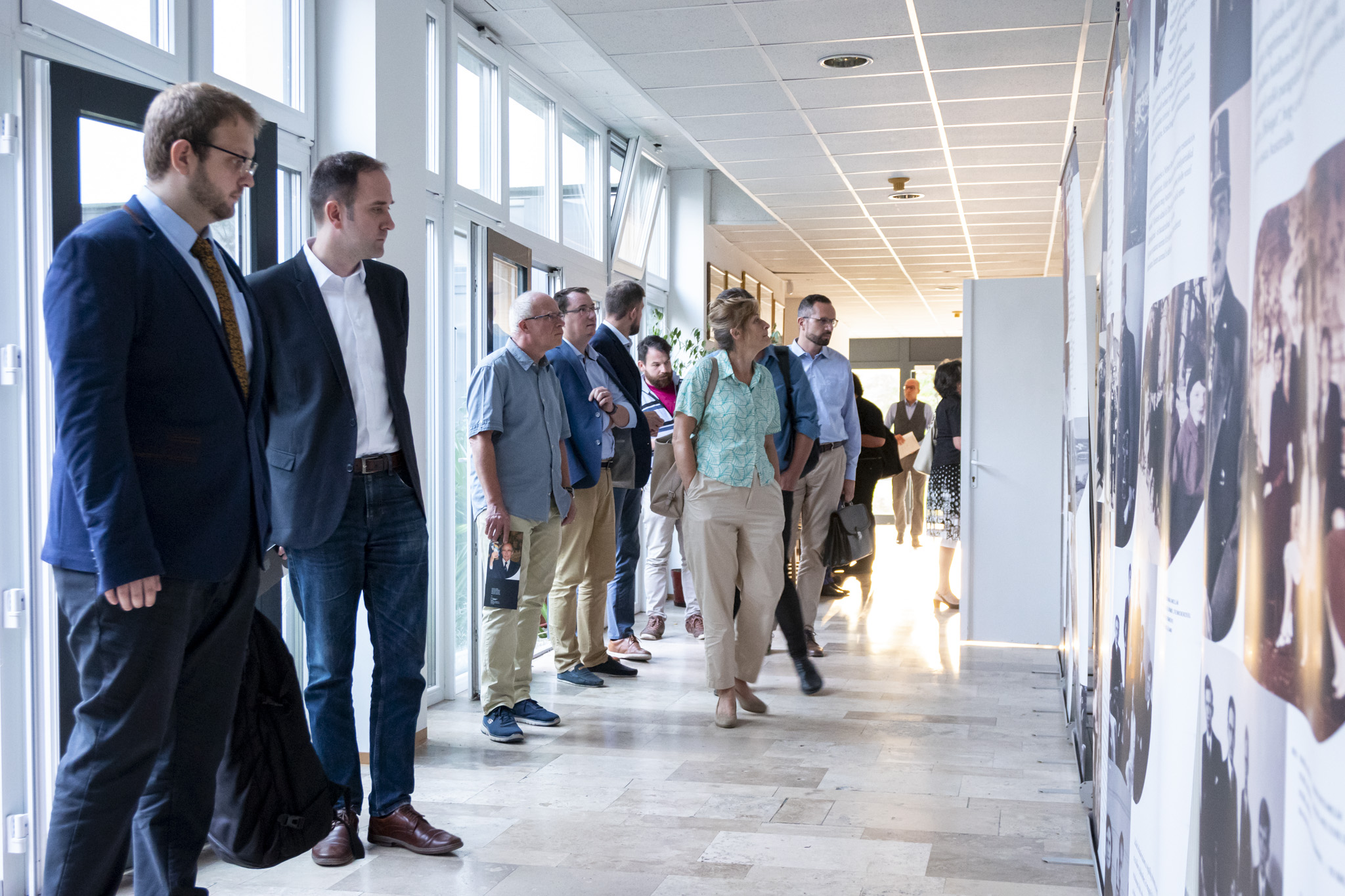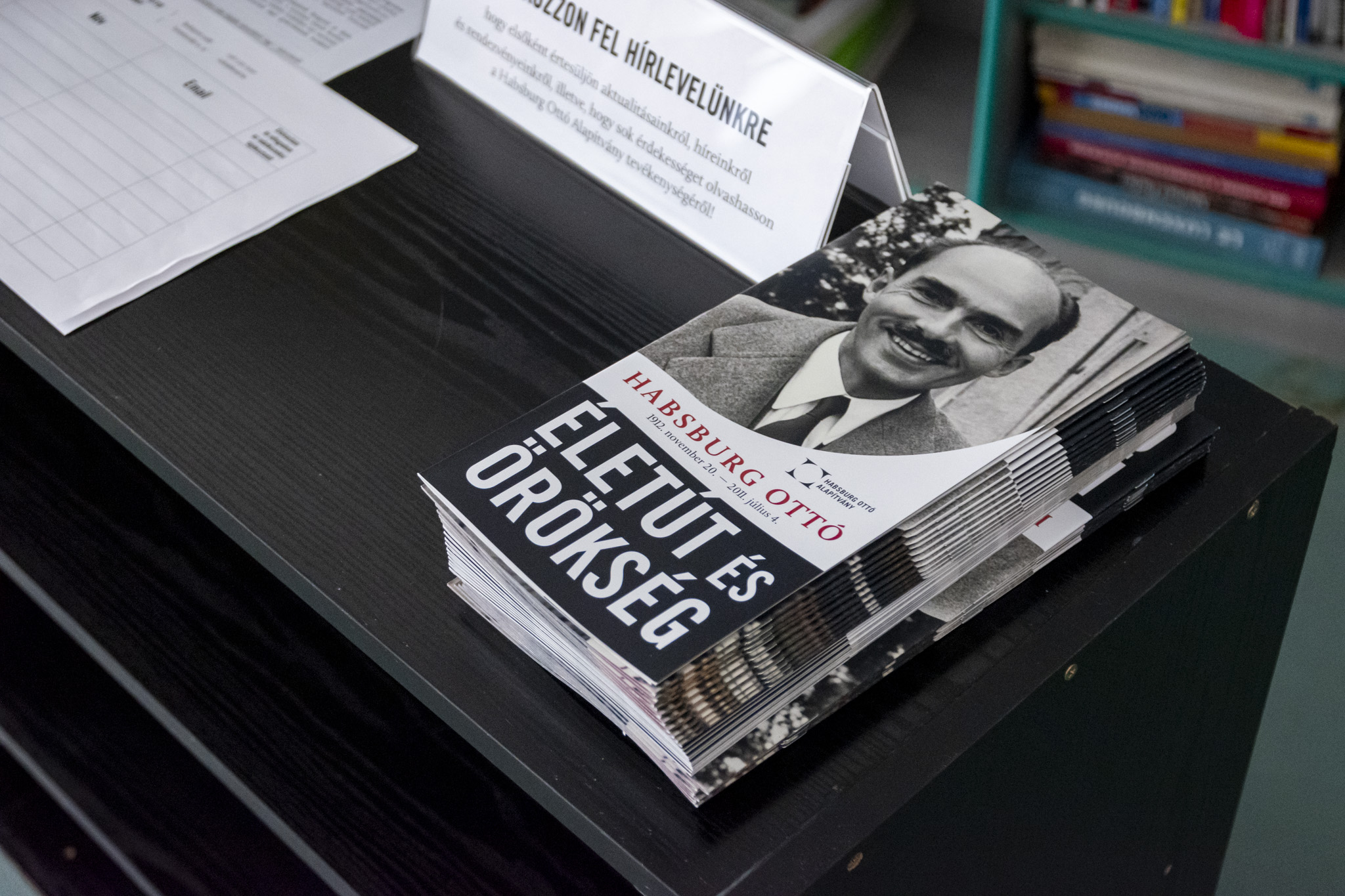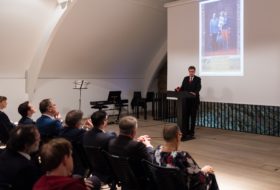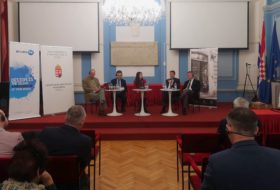The event in Győr aimed to present the vision of Europe of two politicians and thinkers with markedly diverging personalities and vastly different experiences, the thematic parallels and distinctions between their work and thinking, and the relevance of the ideas and thoughts they conveyed. Furthermore, this occasion marked the re-launch of the Bibó István University Club, which Otto von Habsburg visited in the early 2000s.
In his welcoming address, Péter Smuk, Dean of the Faculty of Law and Political Sciences, explained that the club strives to organise discussions that go beyond the university curriculum and provide a forum for meeting figures with significant impact on public thinking and the ideas they represent. However, these occasions can not only help prepare law students for the public engagement traditionally associated with their future profession, but, from a prospective viewpoint, they can also play an important role in further building the intellectual community of the faculty and the city.
György Gyarmati, Professor Emeritus of the University of Pécs, pointed out in his introductory speech: The central question of István Bibó’s thinking of Europe was how to find a solution to the problems of the post-war period and how to create a framework for peaceful coexistence between the peoples of the continent. He was aware of the potential breaking points and the impasses and constraints that have long marked the history of the continent, in particular, of Central Europe. For Bibó, the idea of Europe was, therefore, a kind of community of freedom, a prospect of establishing the desired peace, stability and consolidation. The restoration of peace in European societies and nations – which is at the heart of Bibó’s political thinking on this subject – shares many similarities with the ideas of Otto von Habsburg, even though the former heir to the throne’s political vision was unfolding along the lines of a very different world view.
Photograph by Széchenyi University – Máté Dudás
Gergely Prőhle, Director of our Foundation, drew attention to the fact that behind our namesake, there are 600 years of dynastic tradition, and with the historical awareness derived from it, the former Crown Prince was able to capitalise on it even on the level of political action. For him, the Imperial idea (Reichsidee), modelled on the example of Charles V’s Empire, which was also a decisive influence on his notion of European integration and reflected the concept of a supranational legal order that recognised sovereignties derived from different historical experiences and was organised along the lines of subsidiarity to achieve greater commonweal. Throughout his public career, the former heir to the throne also relied heavily on his father’s intellectual legacy, which was based on the pillars of social sensitivity, a deeply felt Catholic faith and, derived from it, a sense of responsibility, which ultimately, due to the early death of Charles I, could only be transformed into a coherent political programme and then into concrete political action by his son. Therefore, when we talk about Otto von Habsburg’s conservative-Christian-democratic political activity after 1945, his efforts to promote the social market economy, and his remarkably exceptional work ethic, this socialisation pattern must also be constantly reckoned with. Gergely Prőhle stressed that Otto von Habsburg, elected to the European Parliament in 1979, owed the real strength of his work and political charisma to his gratitude for all that he was granted during his career, which made the former heir to the throne one of the most respected figures in post-World War II democratic European politics.
Although the two men had very different careers, making it almost impossible to sketch parallel biographies, it became evident during the discussion that Otto von Habsburg and István Bibó shared a historical awareness and a keen reflection on the deeper structures, the most fundamental interrelations and dilemmas of society and politics, with particular emphasis on the future of Europe and the problems of cooperation and development prospects of the Central European nations. Their views had a considerable effect on democratic political thinking during the period of regime change. István Bibó’s theory of the development of European society – and especially the further elaborated cornerstones of it by Jenő Szűcs – carried a powerful political message against the existing geopolitical realities, while Otto von Habsburg’s endeavours towards a unified integration, including Central Europe, were an inspiration for the political actors of the time. Although their concepts of Europe and the region unfolded with vastly different emphases, both were sovereign thinkers who not only recognised the long-term development potential of the continent and the region but whose sober courage is still able to bring new impulses to thinking and political action on Central European cooperation and European integration. And their insight and exceptional preparedness are still a source of motivation for those involved in and interested in public life.
As part of the event, the Otto von Habsburg Foundation presented its exhibition on the life of his namesake, which will be on display until the end of October.
